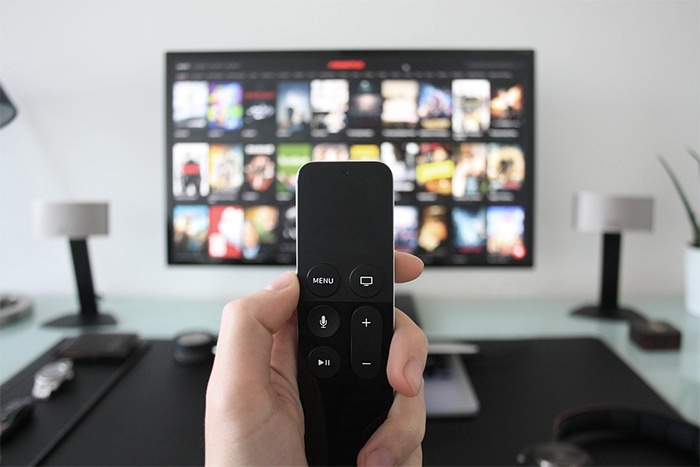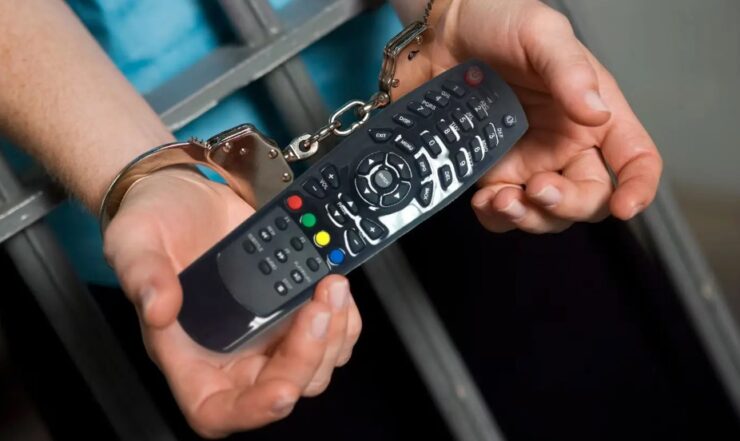IPTV has gained a lot of attention in recent years, especially among those looking for a flexible and affordable alternative to traditional cable services. Sweden, known for its technological advancements and high-speed internet, provides a fertile ground for IPTV services to thrive. However, the question remains: Is IPTV allowed in Sweden?
We will break down the key legal aspects to clarify the status of IPTV in the country.
Key Points
- IPTV is not inherently illegal in Sweden.
- Legal issues arise from content licensing.
- Sweden enforces strict copyright laws.
- Unauthorized IPTV services can lead to penalties.
- Choose licensed providers to avoid legal trouble.
What is IPTV?
IPTV, or Internet Protocol TV, is a system that delivers television programming over the internet rather than through traditional cable or satellite signals. It offers flexibility, access to a wide range of content, and often lower costs than traditional services.
Providers use IP-based networks to stream content, making it available across various devices such as smartphones, tablets, and smart TVs.

Choosing Licensed IPTV Providers
To stay within the boundaries of the law, users should always choose licensed IPTV providers. Legitimate services acquire the necessary broadcasting licenses and content distribution rights. In Sweden, many legal IPTV providers offer a wide selection of local and international channels, ensuring users have access to a diverse range of content without the risk of lawful repercussions.
For those who are unsure where to begin, IPTV services like Sverige IPTV are an option to explore. These services typically comply with the local regulations and ensure the proper distribution of copyrighted material.
Legality of IPTV in Sweden
The legality of Internet Protocol TV in Sweden depends entirely on the source of the content. IPTV as a technology is not illegal. However, problems arise when the content streamed through services bypasses proper licensing agreements. Content providers, including broadcasters and streaming platforms, invest heavily in acquiring distribution rights for specific regions. If IPTV platforms operate without securing legitimate agreements with those content providers, the service becomes illegal.
Swedish authorities take copyright infringement very seriously. Streaming copyrighted content without proper authorization is considered a violation of the country’s strict intellectual property laws. Many users might not realize that using unauthorized Internet Protocol TV providers can have legitimate consequences. Fines and penalties are possible outcomes if caught using illegal services.

Copyright and Intellectual Property Concerns
One of the primary reasons unauthorized IPTV services fall into legal gray areas is the breach of copyright laws. Content creators, production companies, and broadcasters hold exclusive rights to distribute their content. Unauthorized distribution, especially without proper compensation, is illegal. Swedish law has strict measures to protect intellectual property rights, including digital content distributed through IPTV platforms.
In Sweden, copyright infringement laws extend to users who knowingly access illegal content. Even though users might not host the illegal content themselves, streaming copyrighted material without permission still counts as a violation. Swedish authorities actively monitor illegal Internet Protocol TV activities and have been known to crack down on both providers and end-users who use unauthorized services.
What Happens When You Use Unauthorized IPTV Services?
Using unauthorized IPTV services comes with potential risks. Authorities in Sweden can monitor illegal streaming activities and take action against users. Penalties range from warnings to fines, and in severe cases, imprisonment. Legal action can target both the providers of illegal IPTV services and the users who access them.
Users may experience frequent service outages, poor video quality, and the risk of malware. Furthermore, unlicensed providers often fail to offer customer support, which can lead to frustration when technical issues arise.

Understanding Licensing Agreements
Licensing agreements are the foundation of legal IPTV services. Content distributors need to pay broadcasters and production companies for the right to stream their material. Licensed Internet Protocol TV providers must enter into legal agreements with content owners to distribute their programming. This process involves securing the rights for specific geographic regions, ensuring the content is legally available in Sweden.
The complexity of licensing agreements can make it difficult for users to determine whether a provider is legal or not. Some providers may advertise a large selection of channels but operate without the necessary licenses, putting both the provider and the user at risk of legal action.
How to Protect Yourself as a Consumer
The safest way to avoid legal trouble when using IPTV in Sweden is to choose a reputable, licensed provider. Look for services that clearly state their legal agreements with content distributors and broadcasters. Avoid providers that offer suspiciously low prices or an unrealistic number of channels.
Consumers should also stay informed about changes to Swedish copyright laws and IPTV regulations. The legal landscape surrounding these services can shift, making it essential for users to stay updated on the latest rules.
Legal Alternatives to Illegal IPTV Services
There are numerous legal alternatives to illegal IPTV services in Sweden. Many local providers offer streaming packages that comply with copyright laws and provide access to popular TV channels, movies, and series. Services like Netflix, HBO Max, and Disney+ are available in Sweden and offer a wide range of content.
By opting for legal streaming providers, users can enjoy high-quality programming without worrying about potential legal repercussions. Many legitimate providers also offer competitive pricing and packages tailored to the needs of Swedish users, making it easier than ever to access legal content.

Conclusion
IPTV in Sweden is not illegal, but using unauthorized services can result in serious legal consequences. Copyright laws in Sweden are strict, and both IPTV providers and users must adhere to them. The best way to ensure compliance is to choose licensed providers that have entered into legal agreements with content owners.
Consumers should exercise caution when selecting an IPTV provider, verifying that it complies with Swedish copyright regulations. With the increasing demand for these services, the Swedish government is expected to enforce stricter rules in the future. Staying informed and choosing legal alternatives will protect users from legal trouble while offering access to high-quality content.
Enjoy the benefits of IPTV without legal concerns!

